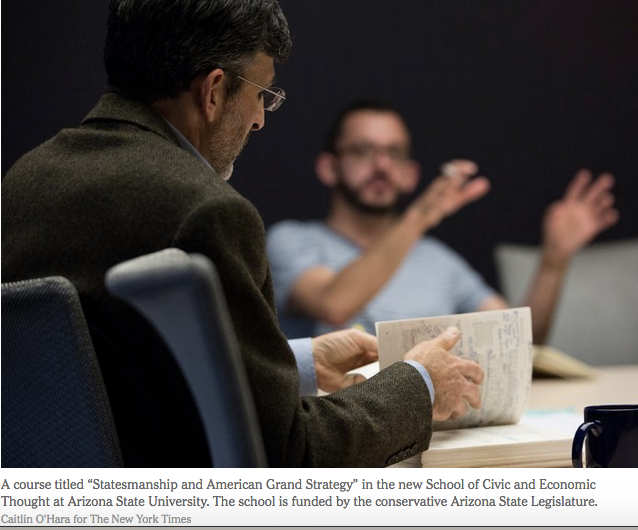TEMPE, Ariz. — In a classroom designed for 32, five students listened attentively last month to an analysis of Aristophanes’ play “The Clouds.” Nine students in another course took in a detailed lecture about the Peloponnesian War, while yet another class pondered the concept of happiness as defined by Aristotle.
Small classes, deep engagement with professors, and a focus on the Classics — they could be scenes from an elite and expensive liberal arts college. Instead, these classes are taking place at one of America’s largest public universities, Arizona State, courtesy of a pet project generously funded by the state’s conservative leaders.
Around the country, Republican legislatures have been taking a greater interest in the affairs of their state universities to counteract what they see as excessive liberalism on campus, from quarrels over conservative speakers to national anthem protests to the very substance of what students are taught.
In Arizona, the Legislature has taken a direct role, fostering academic programs directly from the state budget and sidestepping the usual arrangement in which universities decide how to spend the money. Lawmakers are bankrolling the new School of Civic and Economic Thought and Leadership at Arizona State, and the University of Arizona’s Department of Political Economy and Moral Science. Locally, they are better known as the “freedom schools,” and not always admiringly.
Their creation reflects a cultural struggle within academia, one that some conservatives believe requires government intervention to counter a liberal professoriate. Their goal is to promote the study of Western civilization, once a core requirement at many colleges, contending that a well-educated society must understand its roots — the Delphic maxim “know thyself.”




